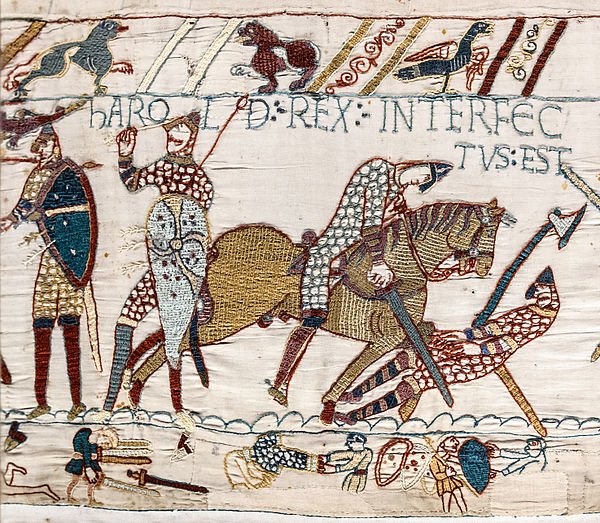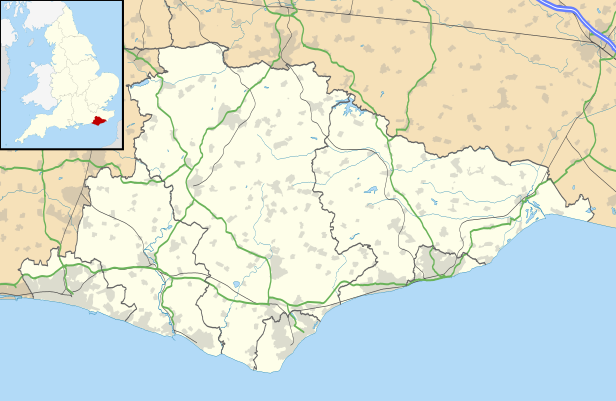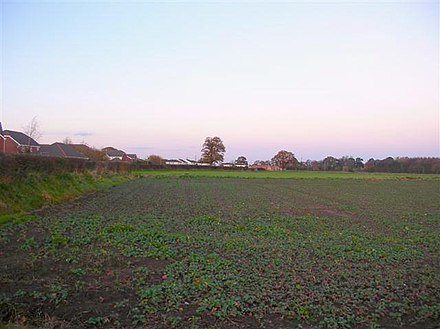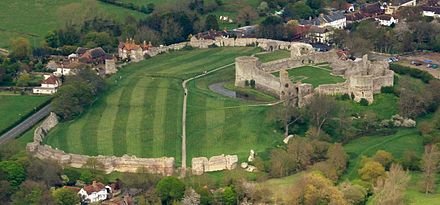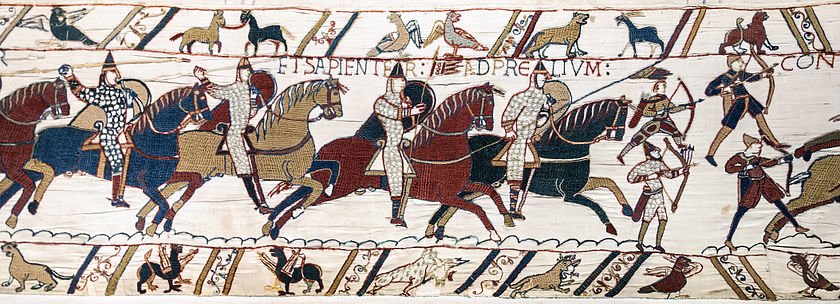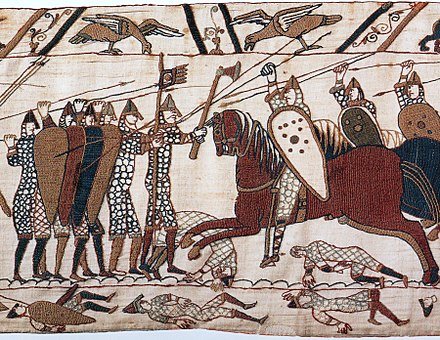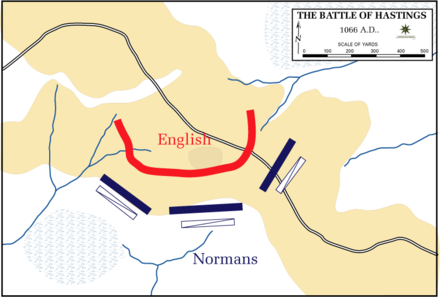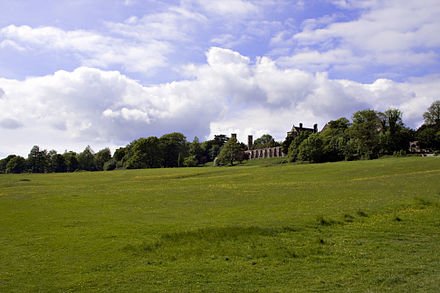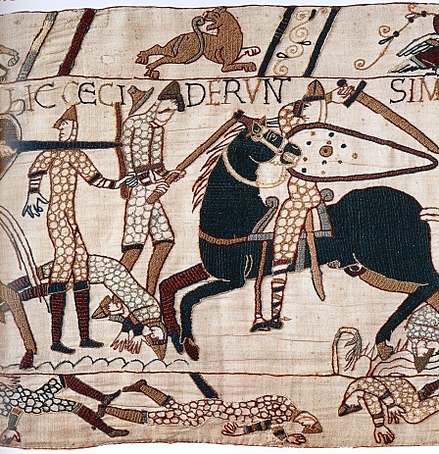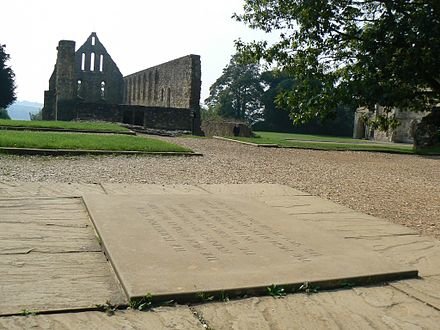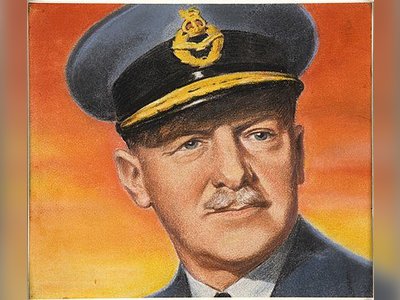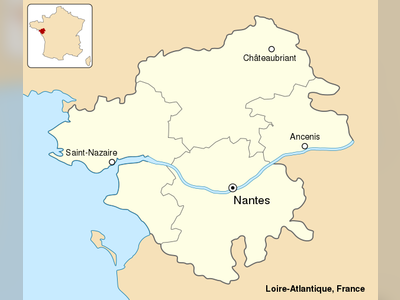British Heritage
Remember, Cherish, Learn.
beta
Battle of Hastings
Contribution of the Battle of Hastings to British Heritage.
The Battle of Hastings, fought on 14th October 1066, holds immense significance in British history as it marks a turning point that shaped the future of England. The battle was a decisive clash between the Norman-French army led by William, the Duke of Normandy, and the English forces under King Harold Godwinson, resulting in William's victory and the beginning of the Norman conquest of England. This momentous event led to a profound and lasting impact on British heritage, contributing to the establishment of the Norman monarchy in England and profoundly shaping its political, social, and cultural landscape.
The legacy of the Battle of Hastings lies in the successful conquest of England by the Normans. Following William's victory, he was crowned King of England on Christmas Day in 1066. This marked the beginning of Norman rule, bringing about significant changes to English governance, administration, and culture.
One of the most lasting legacies of the Norman Conquest was the transformation of the English aristocracy. William rewarded his loyal followers with lands and titles, leading to the establishment of a new Norman nobility in England. The feudal system, which was already prevalent in Normandy, was introduced to England, cementing the ties of loyalty and vassalage between the king and his nobles. This new aristocracy played a crucial role in governing England and influencing its future development.
The Norman Conquest also led to profound changes in the English language and culture. The Normans brought their own language, Old French, which became the language of the ruling elite. English, spoken by the common people, and Old French eventually merged, resulting in the development of Middle English. The Normans also introduced their architectural style, evident in the construction of castles, churches, and cathedrals across the country, leaving a lasting mark on British architecture.
The Battle of Hastings and the Norman Conquest had far-reaching consequences for British heritage, shaping the country's political, linguistic, and architectural identity. The introduction of feudalism and the establishment of a new nobility created a social structure that influenced the development of British society for centuries. Feudal relationships and the system of land tenure brought stability and centralization to governance, providing the foundation for the medieval English monarchy.
Language and culture were deeply influenced by the Norman presence in England. The merging of Old French and Old English led to the evolution of Middle English, the language of Chaucer's works and other literary masterpieces of the medieval period. Additionally, the blending of Norman and Anglo-Saxon traditions gave rise to a unique Anglo-Norman culture, evident in art, literature, and customs.
The architectural heritage left by the Normans is also significant. Their castles, such as the iconic Tower of London, and Romanesque-style churches and cathedrals, like Durham Cathedral, became defining features of the English landscape. The lasting impact of Norman architecture can still be seen in the many medieval structures that survive to this day.
The Battle of Hastings stands as a defining moment in British history, with its legacy reaching far beyond the battlefield. The success of William, Duke of Normandy, in conquering England marked the beginning of a new era of Norman rule that significantly shaped the course of British heritage. The establishment of feudalism, the merging of languages and cultures, and the enduring architectural contributions of the Normans are testament to the lasting impact of the Battle of Hastings on British identity and heritage. Today, the battle is remembered and commemorated as a pivotal event that forever changed the course of England and laid the foundation for the rich historical tapestry of British heritage.
Legacy and Success of the Norman Conquest
The legacy of the Battle of Hastings lies in the successful conquest of England by the Normans. Following William's victory, he was crowned King of England on Christmas Day in 1066. This marked the beginning of Norman rule, bringing about significant changes to English governance, administration, and culture.
One of the most lasting legacies of the Norman Conquest was the transformation of the English aristocracy. William rewarded his loyal followers with lands and titles, leading to the establishment of a new Norman nobility in England. The feudal system, which was already prevalent in Normandy, was introduced to England, cementing the ties of loyalty and vassalage between the king and his nobles. This new aristocracy played a crucial role in governing England and influencing its future development.
The Norman Conquest also led to profound changes in the English language and culture. The Normans brought their own language, Old French, which became the language of the ruling elite. English, spoken by the common people, and Old French eventually merged, resulting in the development of Middle English. The Normans also introduced their architectural style, evident in the construction of castles, churches, and cathedrals across the country, leaving a lasting mark on British architecture.
Contributions to British Heritage
The Battle of Hastings and the Norman Conquest had far-reaching consequences for British heritage, shaping the country's political, linguistic, and architectural identity. The introduction of feudalism and the establishment of a new nobility created a social structure that influenced the development of British society for centuries. Feudal relationships and the system of land tenure brought stability and centralization to governance, providing the foundation for the medieval English monarchy.
Language and culture were deeply influenced by the Norman presence in England. The merging of Old French and Old English led to the evolution of Middle English, the language of Chaucer's works and other literary masterpieces of the medieval period. Additionally, the blending of Norman and Anglo-Saxon traditions gave rise to a unique Anglo-Norman culture, evident in art, literature, and customs.
The architectural heritage left by the Normans is also significant. Their castles, such as the iconic Tower of London, and Romanesque-style churches and cathedrals, like Durham Cathedral, became defining features of the English landscape. The lasting impact of Norman architecture can still be seen in the many medieval structures that survive to this day.
Conclusion
The Battle of Hastings stands as a defining moment in British history, with its legacy reaching far beyond the battlefield. The success of William, Duke of Normandy, in conquering England marked the beginning of a new era of Norman rule that significantly shaped the course of British heritage. The establishment of feudalism, the merging of languages and cultures, and the enduring architectural contributions of the Normans are testament to the lasting impact of the Battle of Hastings on British identity and heritage. Today, the battle is remembered and commemorated as a pivotal event that forever changed the course of England and laid the foundation for the rich historical tapestry of British heritage.
- Battle of Hastingsen.wikipedia.org
